Book Excerpt: The Law of Divine Compensation by Marianne Williamson
We carry a lot of misconceptions about love. Putting love first isn't a life of "sacrifice," for example, as many have been taught. In fact, putting love first means knowing who you are, which means accepting the fact that you're entitled to miracles. Putting love first means knowing the universe supports you in creating the good, the holy, and the beautiful. It means knowing you’re on the earth for a purpose, and that the purpose itself will create opportunities for its accomplishment.
Making love your bottom line doesn't make you "lose." Putting love first is ultimately the way you inevitably gain. For what you give, you shall receive; and what you withhold will be withheld from you. Most of the world's religions share this core idea. Or, as a friend of mine once described the idea to me, the universe keeps a perfect set of books. You give love; you get love.
Making love the bottom line doesn't mean you have to give everything away or that you'll never charge for your services. The principle of fair exchange gives love to both giver and receiver.
Making love the bottom line doesn't mean you're compelled to do anything anyone ever asks you to do. Love always gives the loving response, but sometimes the loving response is "No."
But it does mean that we take seriously the idea that we are on the earth to do as Love would have us to do. I know from personal experience that when I've done this, I've gained financially as well as in other ways. And when I have not done this, I've lost.
The path of love might not lead to an immediate, short-term bundle of cash. That is not how the Law of Divine Compensation works. But following the path of love leads to trust, deeper relationships, and therefore greater probability of further good. Our internal abundance is ultimately the source of our external abundance. Who we are, not just the services we provide, creates money.
Someone who is positive and energetic when they show up for work; are they or are they not the person most likely to be promoted? Someone who is kind and helpful when you walk into their store; do they or do they not have a business to which you're more likely to return? Someone who inspires genuine trust and faith in the excellence of their work; are they or are they not the person you are more likely to hire for your next project? You know that line about how nice guys finish last? It's a lie.













